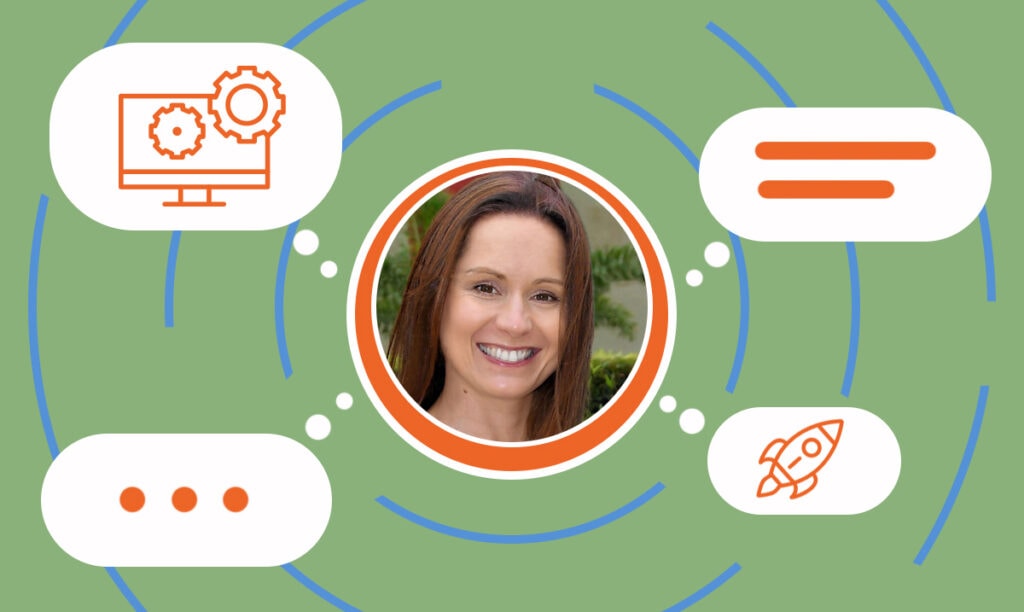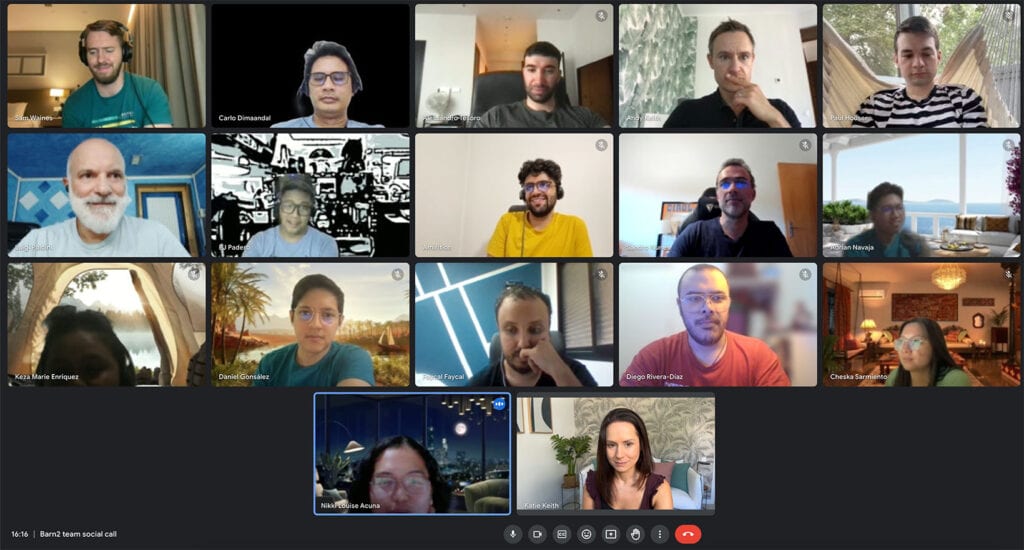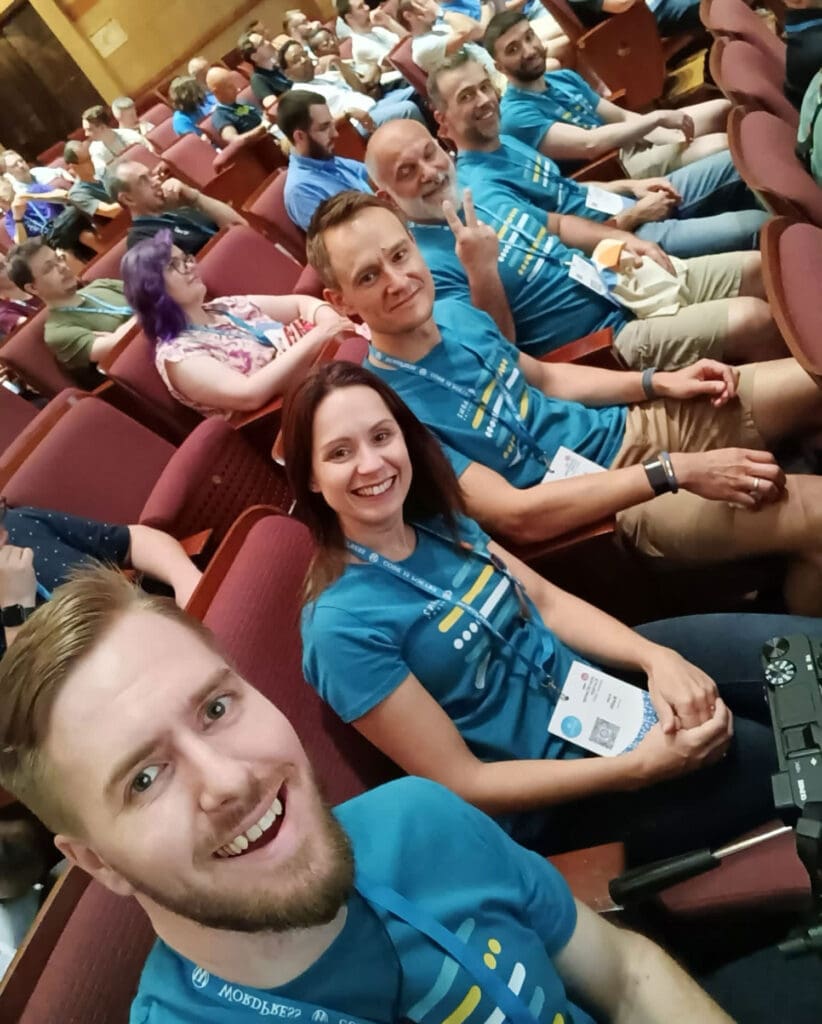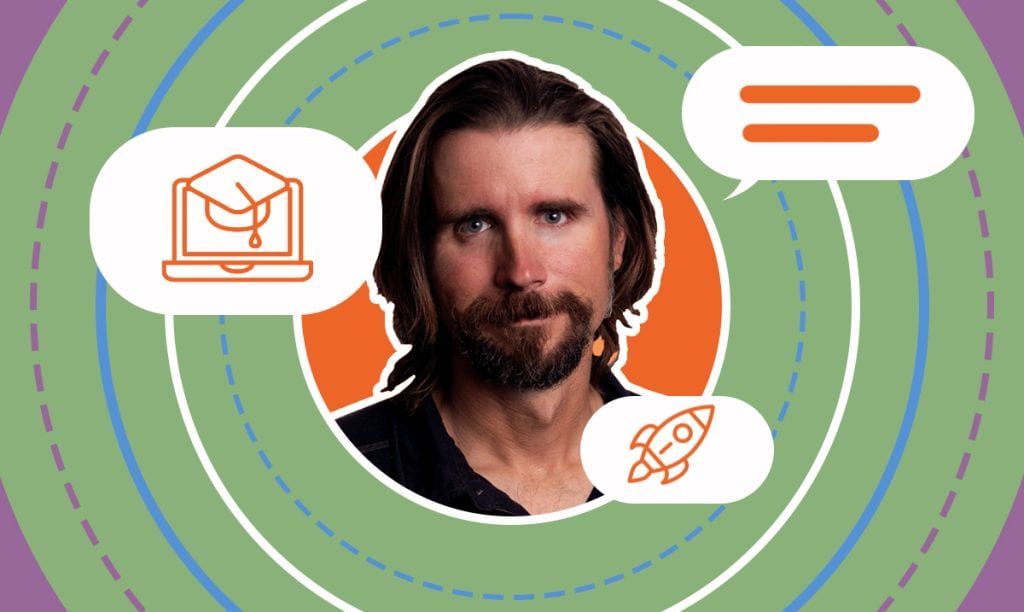In this interview, we sit down with Nan Zhou, co-founder of No Code Map App, to discuss how she and her team transformed a trip-planning mapinterfac ...
The Art of Plugin Development with Barn2’s Katie Keith
Written by: Esther Strauss
Esther is a business strategist with over 20 years of experience as an entrepreneur, executive, educator, and management advisor.
Published on January 23, 2024

In today’s interview, we’re speaking with Katie Keith, the CEO of Barn2, a notable company in the WordPress and WooCommerce plugin industry. With a rich history dating back to 2009, Barn2 has evolved from a web design agency to a leading developer of innovative plugins used globally.
Katie, with her extensive experience in project management and marketing, has been instrumental in driving Barn2’s growth and success. She is also an active member of the WordPress community and co-host of popular podcasts in the field.
We’re excited to delve into her insights on the plugin industry, the journey of Barn2, and her vision for the future of web technologies.
Company Evolution
SBS – How did Barn2 transition from a web design agency to a successful plugin developer, and what were the key challenges and milestones in this journey?
Katie – After building WordPress websites for clients for six years, by 2016, we wanted a new challenge. My husband and co-founder Andy and I dreamed of owning a WordPress product company because we felt this would be more scalable than client work, as well as providing a better work-life balance. We felt it was a better business model all around!
We transitioned from a web design agency to a plugin company by playing to our strengths and focusing on what we knew. Through our client work, we identified gaps in the market and pain points that would allow us to build successful plugins. For example, one of our first plugins was called Posts Table Pro and was a premium version of a project that we had built for a client. The client had a huge blog and wanted to list their blog posts in a searchable table so that people could find them more easily. We developed this into a much more sophisticated plugin that lets website owners list any type of WordPress content in a table. Posts Table Pro is still successful today, and people use it to display blog posts, member directories, audio galleries, and much more — all because of an idea we got from a client.
Some of the milestones in this journey include the successful launch of our WooCommerce Product Table plugin, which immediately became a huge success. The growth of our team was also a big milestone because Andy and I did everything ourselves for a long time and now have a team of 17 people.
Product Development
SBS – What process do you follow to identify gaps in the market and develop plugins that meet these needs?
Katie – We aim to build new plugins that solve real pain points for our customers. Now we no longer do client work, we have had to develop other ways to identify gaps in the market and find ideas for new products. Generally, these come from our customers.
For example, a lot of customers of our WooCommerce Product Table plugin were asking for ways to display quick view buttons, advanced product filters, and other types of product options in their tables. Instead of adding these features directly to our existing plugin, we realised that they each had the potential to become successful standalone products in their own right! As a result, we built three new plugins — WooCommerce Quick View Pro, WooCommerce Product Filters, and WooCommerce Product Options. They all integrate with WooCommerce Product Table but can also be used independently and, therefore, attract a much wider market.
I firmly believe that good product ideas come from what you already know. We find WooCommerce ideas because that’s the area we already specialize in. Similarly, if you work in website security or performance, then if you think hard enough, you’ll find gaps in the market in those areas. Stick with what you know, and you’ll be surprised at how many unique ideas are still out there!
Customer Focus
SBS – How do you ensure that your plugins address the common problems your customers face, and can you share an example of a customer success story?
Katie – The key to solving your customers’ problems is quite simple: listen to your customers.
We’ve built this into our processes wherever possible. When we first started selling plugins, it was easy because I did all the support myself. I was at ground level, learning from our customers every day.
Now I have a team to handle customer support, it’s less easy — but equally important. The support team constantly adds customer requests and pain points to our feature request list. We also send a feedback request email to all customers a week after purchase. These responses come directly to me and are a nice opportunity for me to keep in touch with customers’ needs. I collate all the feedback and use it to find opportunities to improve our plugins, find new keywords to target in our marketing, and so on.
Quality Assurance
SBS – What strategies and practices do you implement to maintain high standards of quality and usability in your plugins?
Katie – We maintain high standards of quality and usability in our plugins by following a rigorous testing process that includes manual testing, automated testing, and code reviews. Our goal is to provide our customers with reliable and user-friendly plugins that meet their needs.
In the future, I plan to make our quality control processes even more robust. This includes much greater use of unit testing and possibly hiring a full-time tester.
Team Management
SBS – As a company with a globally distributed team, what are your strategies for effective communication and project management?
Katie – We use a combination of communication tools such as Slack, Google Meet, and email to stay connected and manage projects effectively. We have monthly team social calls as well as sub-team calls.
Since we have team members spread all over the world, sadly, we have never had a whole-team retreat. Unfortunately that’s not realistic financially right now! Instead, I attend all three of the flagship WordCamp events (Europe, Asia, and the US) and fund our team members to attend their local ones. That way, I get to meet everyone, and they can meet some other team members.

Innovation and AI
SBS – How do you see AI impacting the WordPress plugin industry, and what plans do you have to integrate AI into your products or processes?
Katie – I believe that AI will play a significant role in the WordPress plugin industry by automating repetitive tasks and improving user experience. While we do not have any immediate plans to integrate AI into our products, we are keeping a close eye on developments in the field. We are also using AI internally to improve efficiencies.
Marketing Strategies
SBS – What marketing tactics have been most effective in promoting your plugins, and how do you measure their success?
Katie – We use a variety of marketing tactics to promote our plugins, including content marketing, social media, and email marketing. We measure the success of our marketing campaigns by tracking metrics such as website traffic, conversion rates, and customer feedback.
Currently, our marketing team consists of myself, a marketing manager, a video producer, and a designer. We also use Ellipsis’ CMO-as-a-Service service and work closely with them to develop and implement our marketing strategy.
Customer Support
SBS – Can you describe your approach to customer support and how you ensure customer satisfaction?
Katie – Customer support is a top priority for us, and we offer a range of support options such as email, live chat, and a comprehensive knowledge base. We aim to provide our customers with prompt and helpful support to ensure their satisfaction.
Initially, I did all the customer support myself and we hired support engineers over our time. We now have seven support engineers. Most of these are from LevelUp, who specialize in providing dedicated support engineers for WordPress theme and plugin companies. We also have a few direct hires.
Our support team is split into three tiers. Tier 1 handles the simplest tickets, Tier 2 is for advanced product knowledge and troubleshooting, and Tier 3 is for developer-level support.
As the team has grown, we have developed comprehensive support procedures and a handbook. We also have lots of saved responses for commonly asked questions. All of this helps to speed up repetitive tasks and make the team more consistent and efficient.
Future Developments
SBS – What new plugins or features are you currently working on, and what future trends do you foresee in the WordPress plugin market?
Katie – Currently, we are working on two new plugins that we hope to release soon. These are:
- WooCommerce Discount Manager — an all-in-one plugin for providing a wide range of discounts and free products in WooCommerce
- WooCommerce Checkout Manager — a flexible checkout editor plugin to streamline the WooCommerce checkout page
After that, we’re doing to take a break from developing new plugins and focus on making our most popular plugins as good as they can be. This will involve listening to our customers and adding the most highly-demanded features to our top plugins.
We are also keeping an eye on future trends in the WordPress plugin market to ensure that our products remain relevant and useful.
Advice for Entrepreneurs
SBS – What advice would you give to someone starting a plugin development business in the current market landscape?
Katie – If you’re starting a plugin development business in the current market landscape, my advice would be to focus on building plugins that solve real pain points for your customers. Listen to customer feedback and suggestions, and be willing to adapt and evolve your products to meet their needs.
If you’re just getting started, then the easiest way to get noticed is to build something unique that doesn’t already exist in the market. This may sound difficult, but there are more gaps than you might think! If you’re already working closely in a particular area of WordPress or software development, then think about where your own pain points are and what products might solve them. If you’re building sites for clients, then think about the functionality they have requested that you couldn’t find a solution for. The ideas are there if you look for them! When you build something which is truly unique, it’s much easier to get noticed and rank in search engines because no one is competing for the same terms.

Challenges in Plugin Development
SBS – What are some of the biggest challenges you face in developing and maintaining WordPress plugins?
Katie – Some of the biggest challenges we face in developing and maintaining WordPress plugins include keeping up with the latest updates and changes to WordPress and WooCommerce, ensuring compatibility with other plugins and themes, and providing timely and effective customer support.
For example, WooCommerce will soon launch a new product page builder, which is powered by the block editor. This is likely to break some of the features of our plugins, which will force us to allocate development resources to ensure compatibility with the new editor. That wouldn’t have been my preferred way to use these resources, but it is an unavoidable side-effect of building on top of third-party systems like WordPress and WooCommerce.
Community Engagement
SBS – How do you engage with the WordPress community, and how has this impacted your business?
Katie – I spend a lot of time giving back to the WordPress community. I am the co-host of two podcasts -— WP Product Talk and Do the Woo’s Woo BizChat. Both of these help other product owners to build successful businesses in WordPress. We also sponsor WordCamp conferences.
This has helped us to build relationships with other developers and businesses in the WordPress ecosystem. It has also provided us with valuable feedback and insights into the needs of our customers.
Learning from Failures
SBS – Can you share an experience where a product didn’t go as planned and what you learned from that experience?
Katie – When we started, we found success by building plugins that added a specific feature to WooCommerce. This was an excellent way to rank in search engines when our domain authority was lower and couldn’t compete with the bigger companies. These smaller plugins tend to generate between about $500 and $1,000 per month, which is excellent for a new company.
However, as our company has grown, I have continued to think too small and build plugins like this. We can now gain market share in more competitive areas and build plugins that will attract a larger audience. However, until 2023 we continued to build plugins that had quite a small market — just because I had identified a gap in the market. As a result, we put too many resources into smaller ideas instead of “thinking big.”
We are now looking to sell five of our lowest-selling plugins in order to focus more resources on the ones with the most potential.
Subscribe to Our Newsletter
and gain insider access to cutting-edge business insights and trends.
Featured Resources

How No Code Map App Delivers Custom Maps Without Coding
Published on April 3, 2025
Read Now

How LifterLMS Simplifies Online Course Creation for Educators
Published on February 27, 2025
Online education is booming, but creating and scaling a successful course can be challenging without the right tools. That’s where LifterLMS comes ...
Read Now

How Jinxbot Leads Zero-Waste 3D Printing
Published on January 14, 2025
Jason Reynolds, founder of Jinxbot and co-founder of the zero-waste nonprofit PrintCycle, is leading the charge. With a passion for innovation anden ...
Read Now
Comments